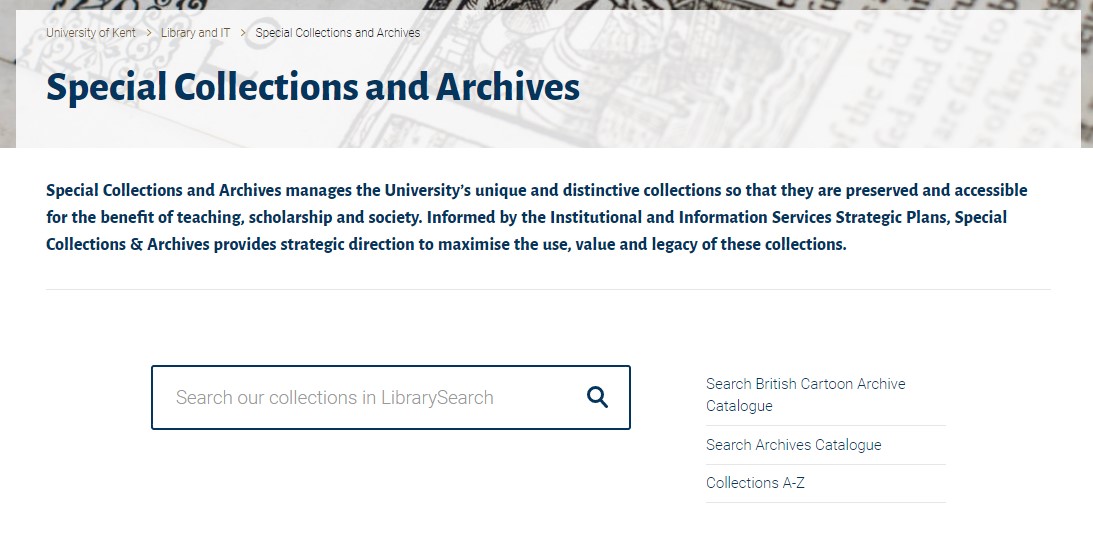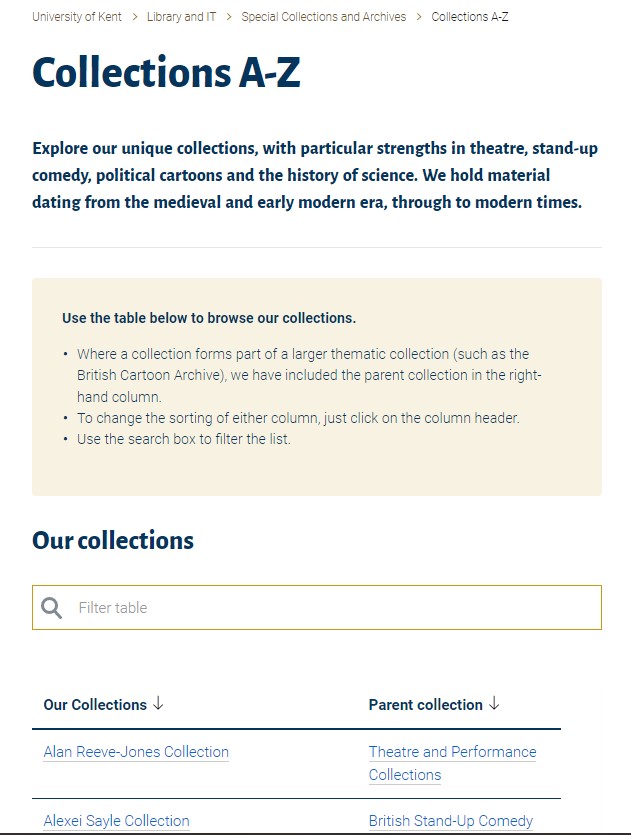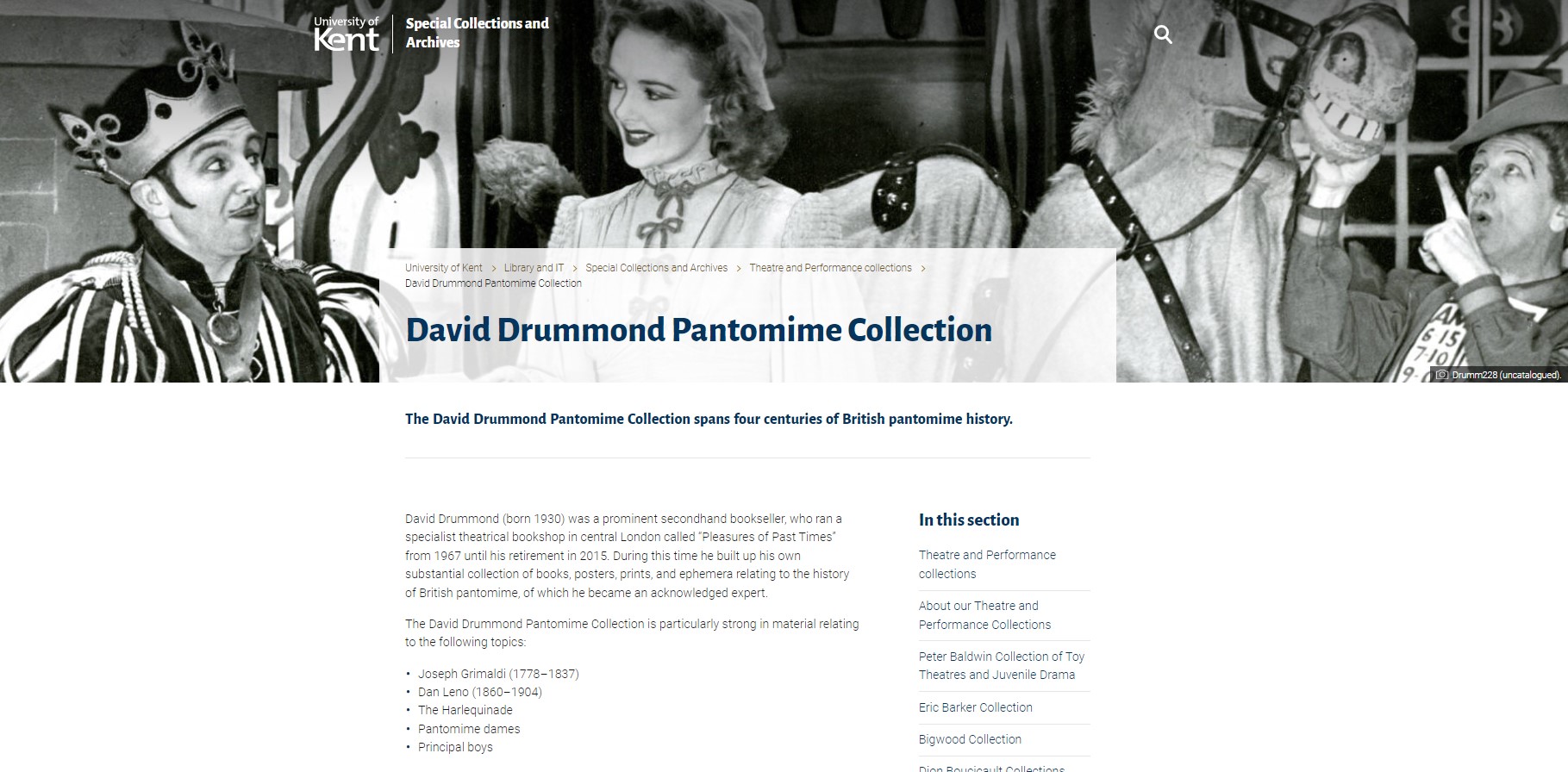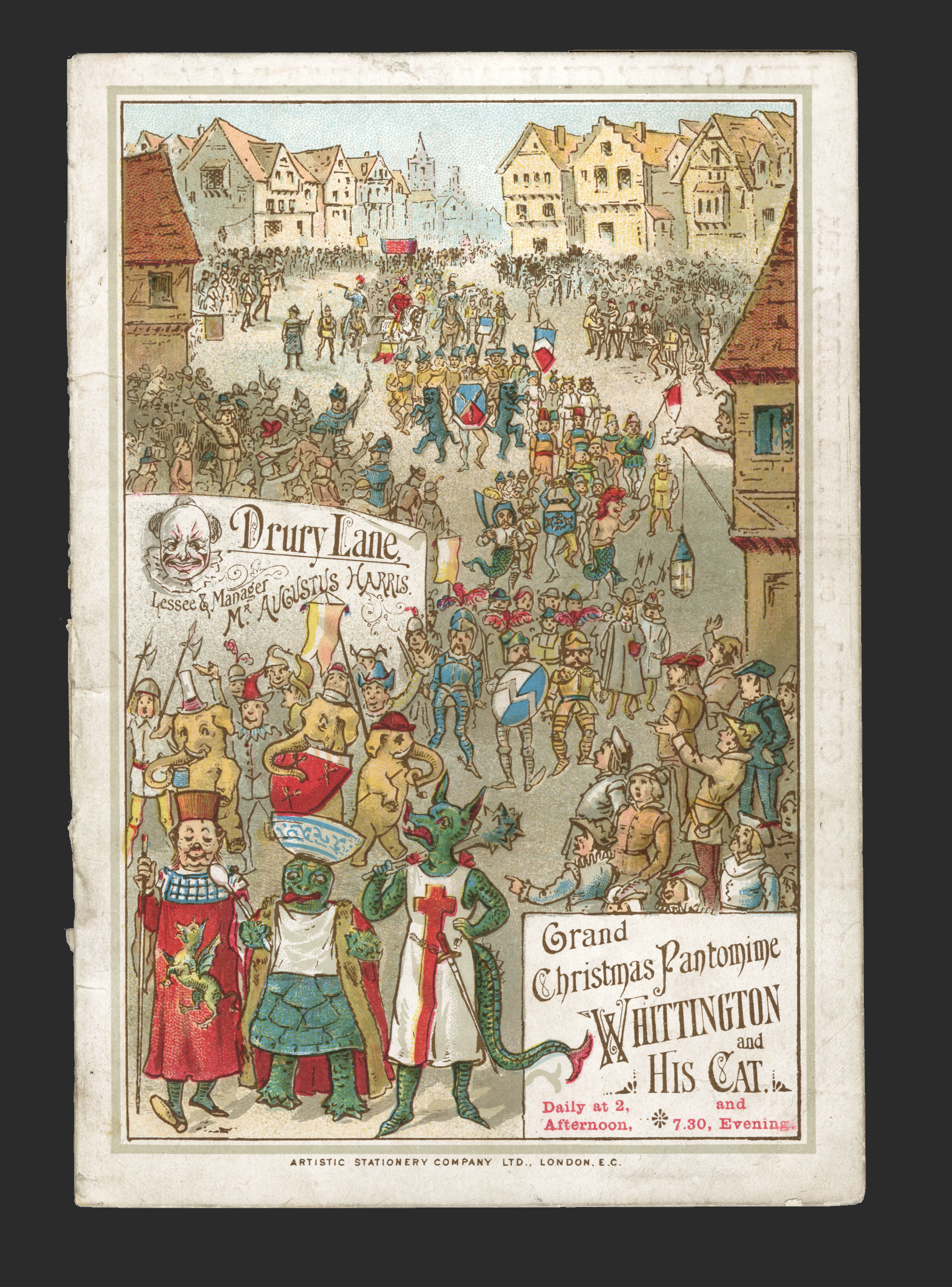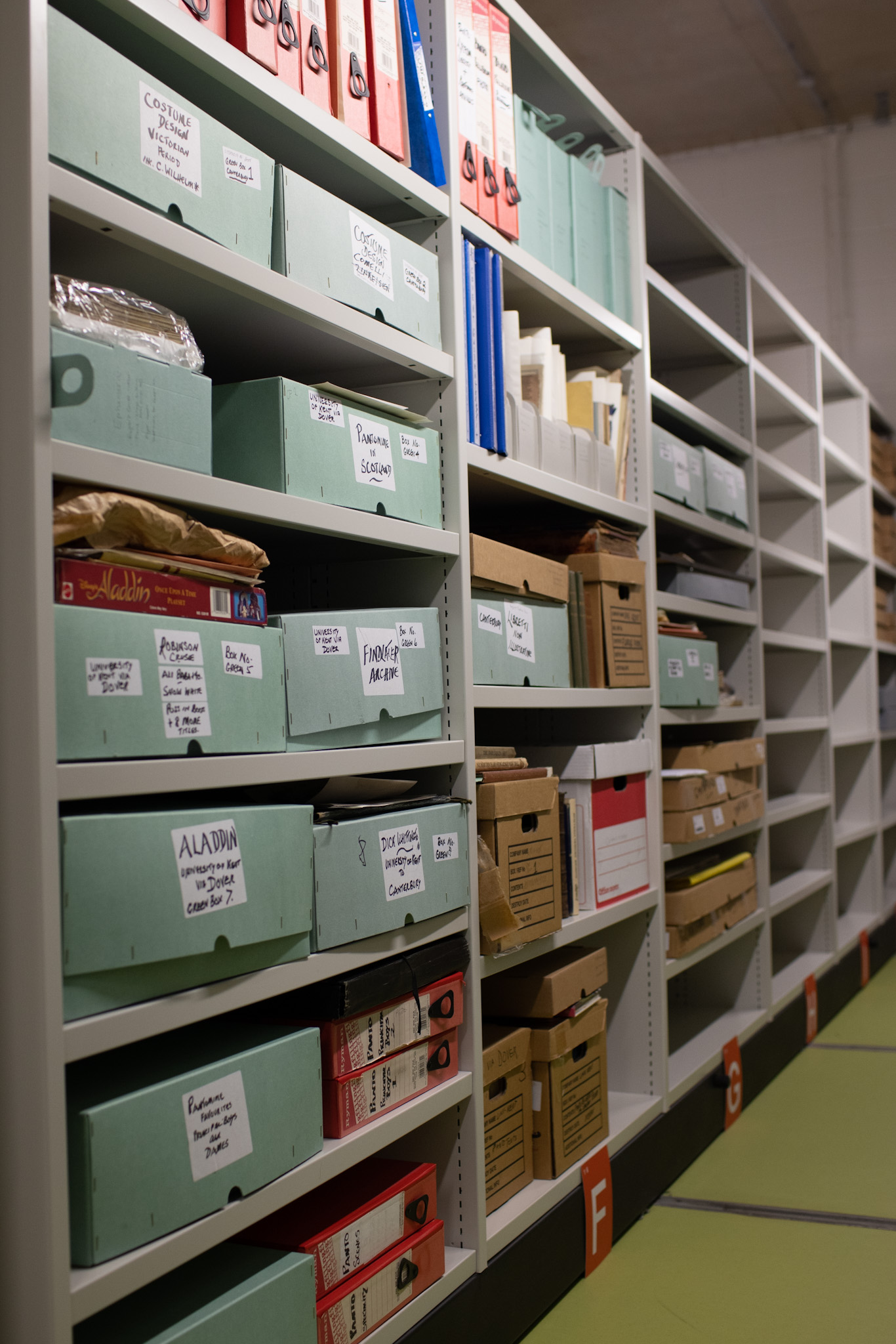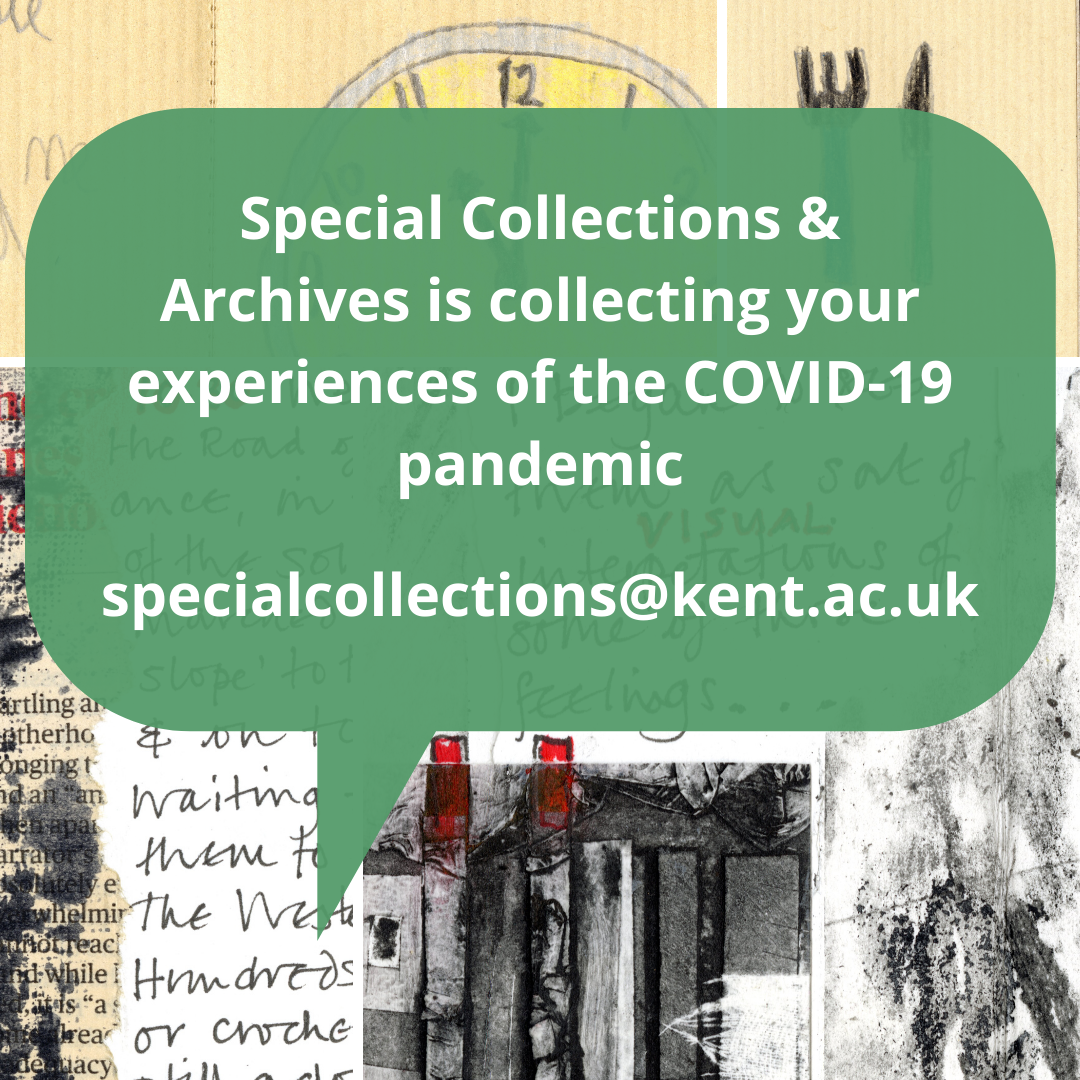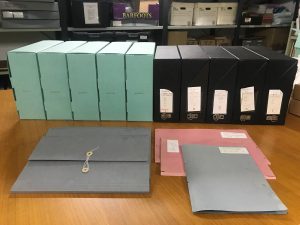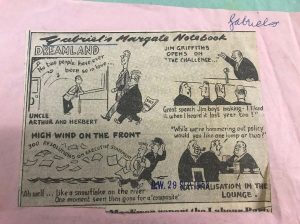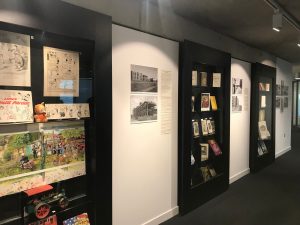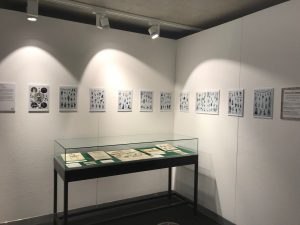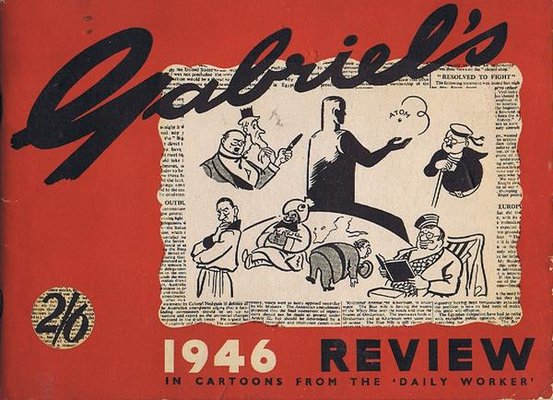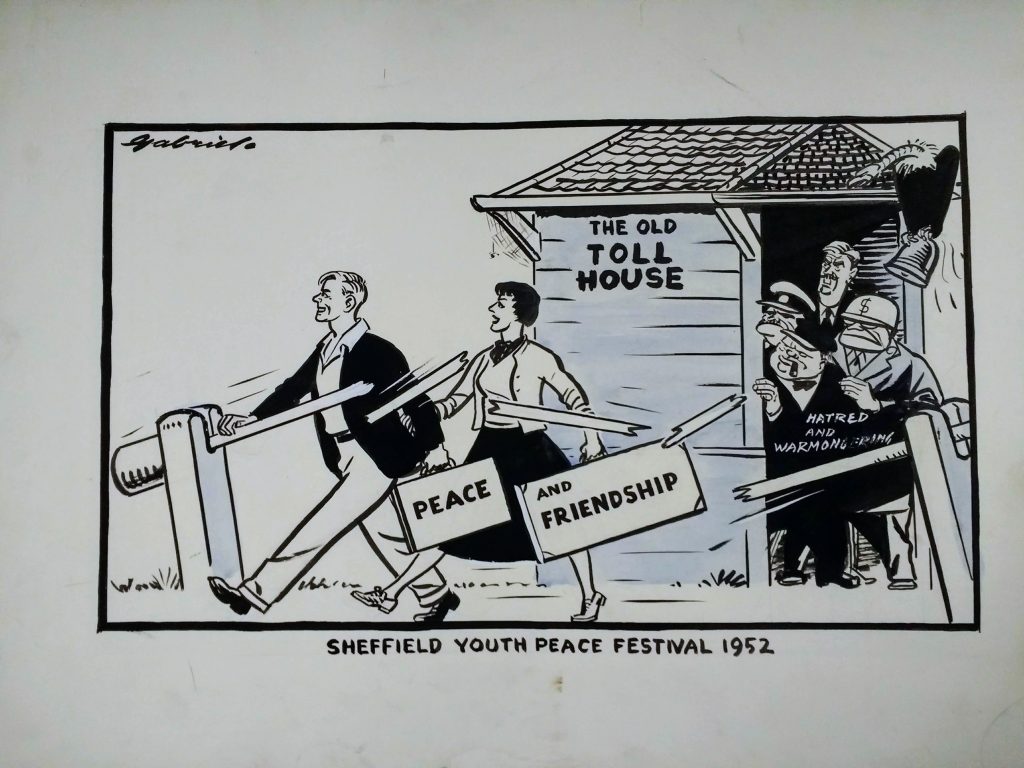Happy January everyone! It’s still relatively early into 2022 but we are already excited to show you something we’ve been working on for over a year now – the new look Special Collections and Archives (SC&A) website! In this post, we’ll show you around the new site and answer some questions about its creation, how we’ve designed it and what this means for you as users.
Why did the SC&A website need changing?
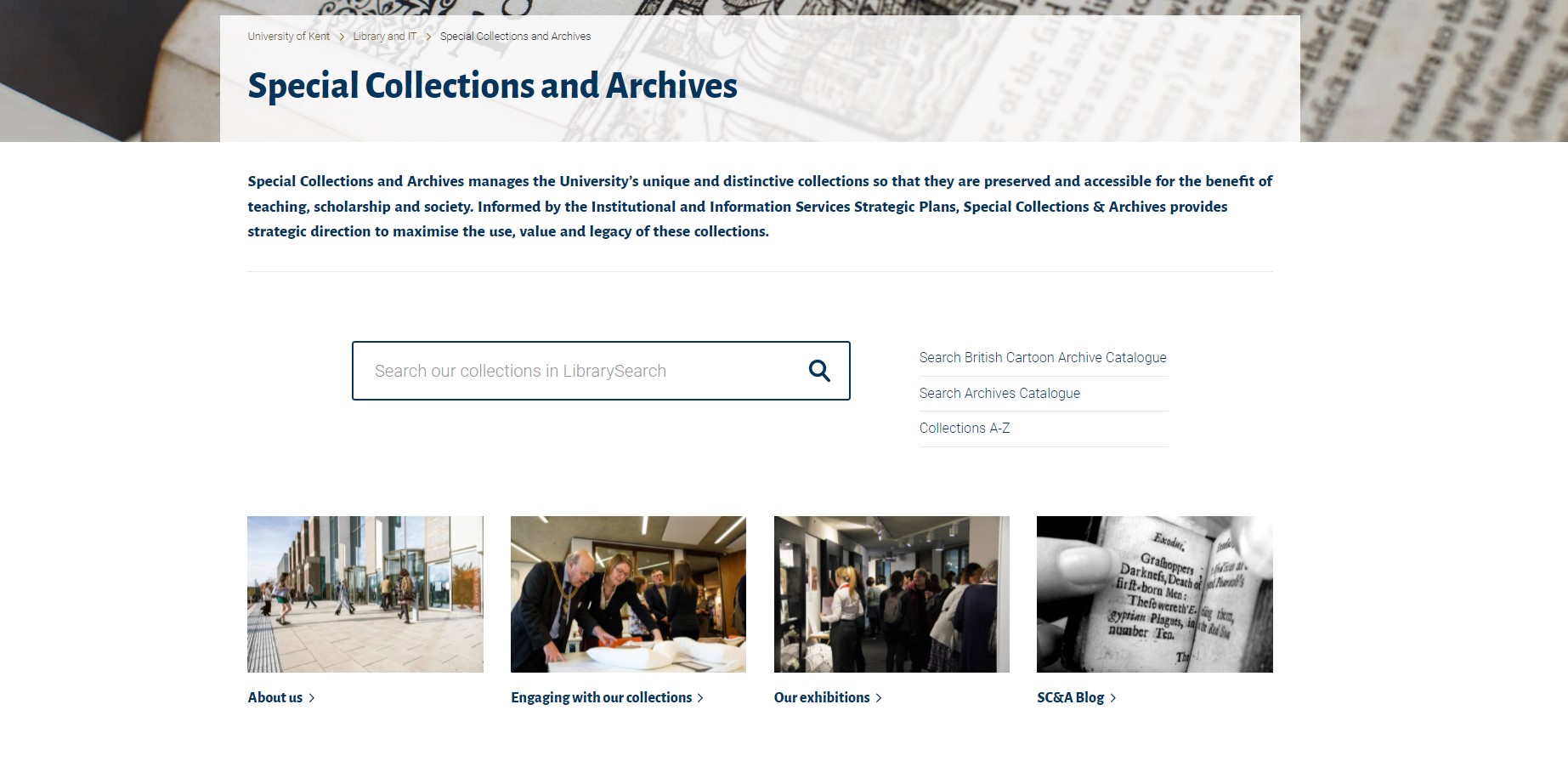
Screenshot of the new SC&A homepage. It is much more visual and core links to search our collections are front and centre of the page.
Short answer to a question we could discuss for hours: the old SC&A website looked, well, old. Whilst we worked really hard to keep all the information updated, including pages for new collections as they were acquired, the University has switched to a much more modern design of website in the past couple of years and our web pages needed to fit that new template. There are a lot of advantages to the new site: it’s incredibly visual, should look better on mobile devices, and is much easier for staff to keep updated behind the scenes.
For the SC&A team, the new website format has also allowed us to complete some work we’ve been planning for a while: making a single website for all of our collections, including the British Cartoon Archive. We’ve transferred over all the information from previous pages, and where that hasn’t been possible we’ve kept all the old site information working. It’s also been a great chance for us to tweak some of the things that didn’t work so well on the old site and to highlight information that’s previously been somewhat hidden.
What content on the updated website is new?
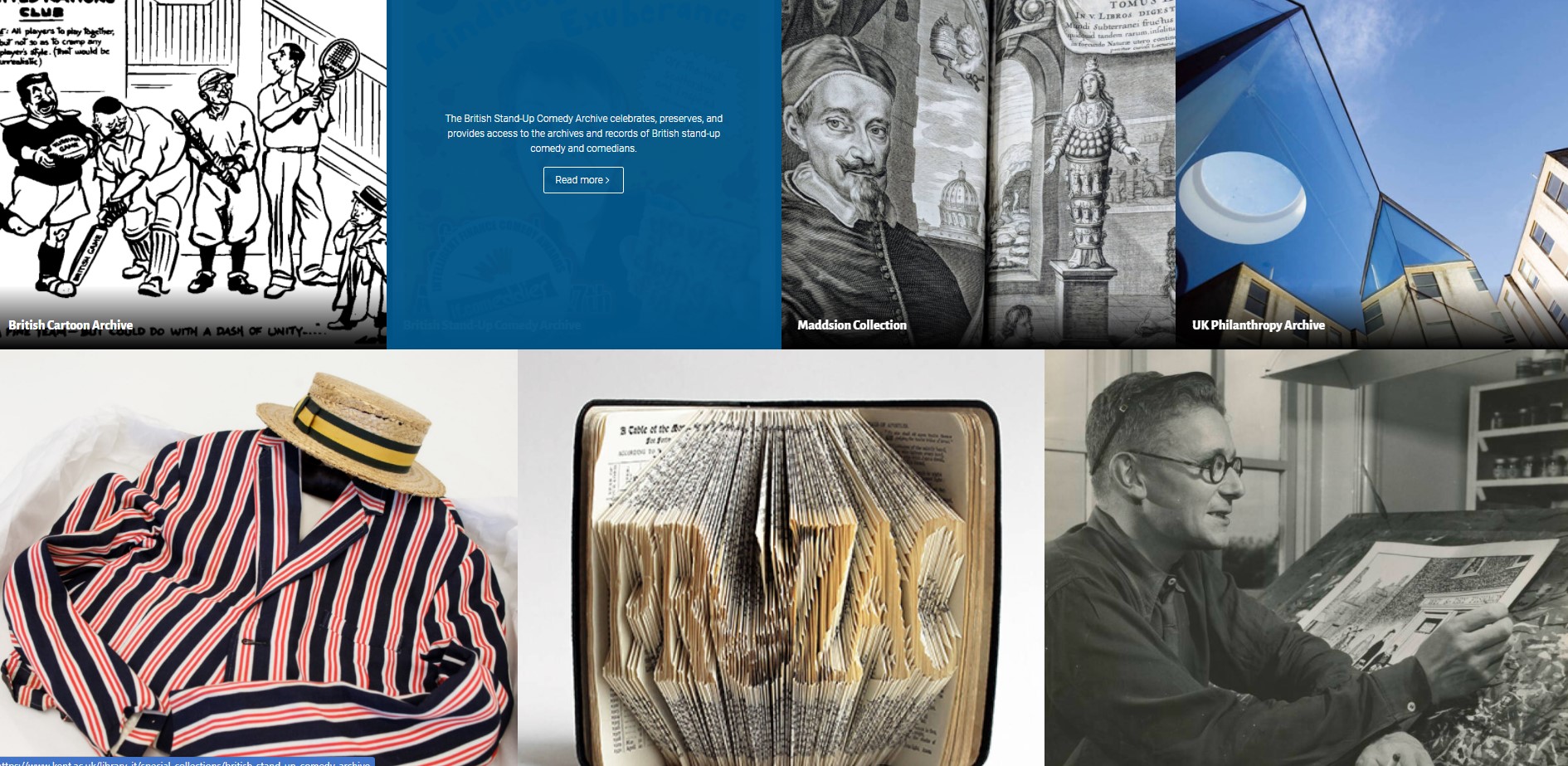
Screenshot of the collections showcase section of the new SC&A homepage, highlighting some of our core collections.
There’s so much new content on the SC&A website that it’s hard to narrow it down, but a couple of sections really stand out for us. Firstly (as you can see above), the homepage has a brand-new Collections Showcase section, highlighting some of the fantastic material in our care. We’ll be changing this up to tie in with key events, anniversaries and exhibitions – so do keep checking back.
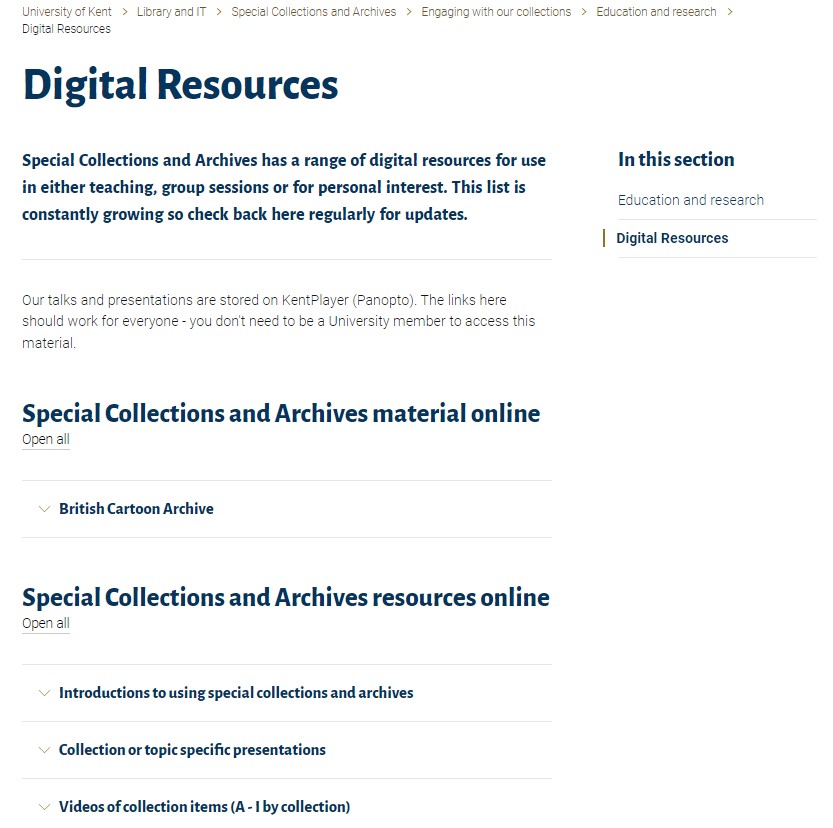
Screenshot of our new Digital Resources page, which collates all our learning, teaching and events resources in one place.
Secondly, we’ve added a new page for all of our digital resources that we create as part of our Education and Engagement work! This page includes links to videos of past events, introductions to using our collections, and even some films of items we look after to give you an idea of what we hold. The digital resources listed here are accessible to everyone and we’ll be updating the page when we add more content.
We’ve also done a lot of work with our wonderful Library Systems colleagues to ensure searching our collections is easier than ever before. Our homepage now has a dedicated searchbar for SC&A material in LibrarySearch (no more typing your terms into the main catalogue and filtering by location), and there are links to the British Cartoon Archive catalogue and the SC&A archive catalogue too. These search links are the first thing you’ll see on our new homepage.
Do you still have pages for all your collections?
Yes, and (we think) it’s better than ever! For the first time, you can directly search all our collections pages and see which main collection they’re a part of. This is particularly useful for our bigger ‘parent’ collections such as the British Cartoon Archive and the British Stand-Up Comedy Archive which contain many different individual collections within them.
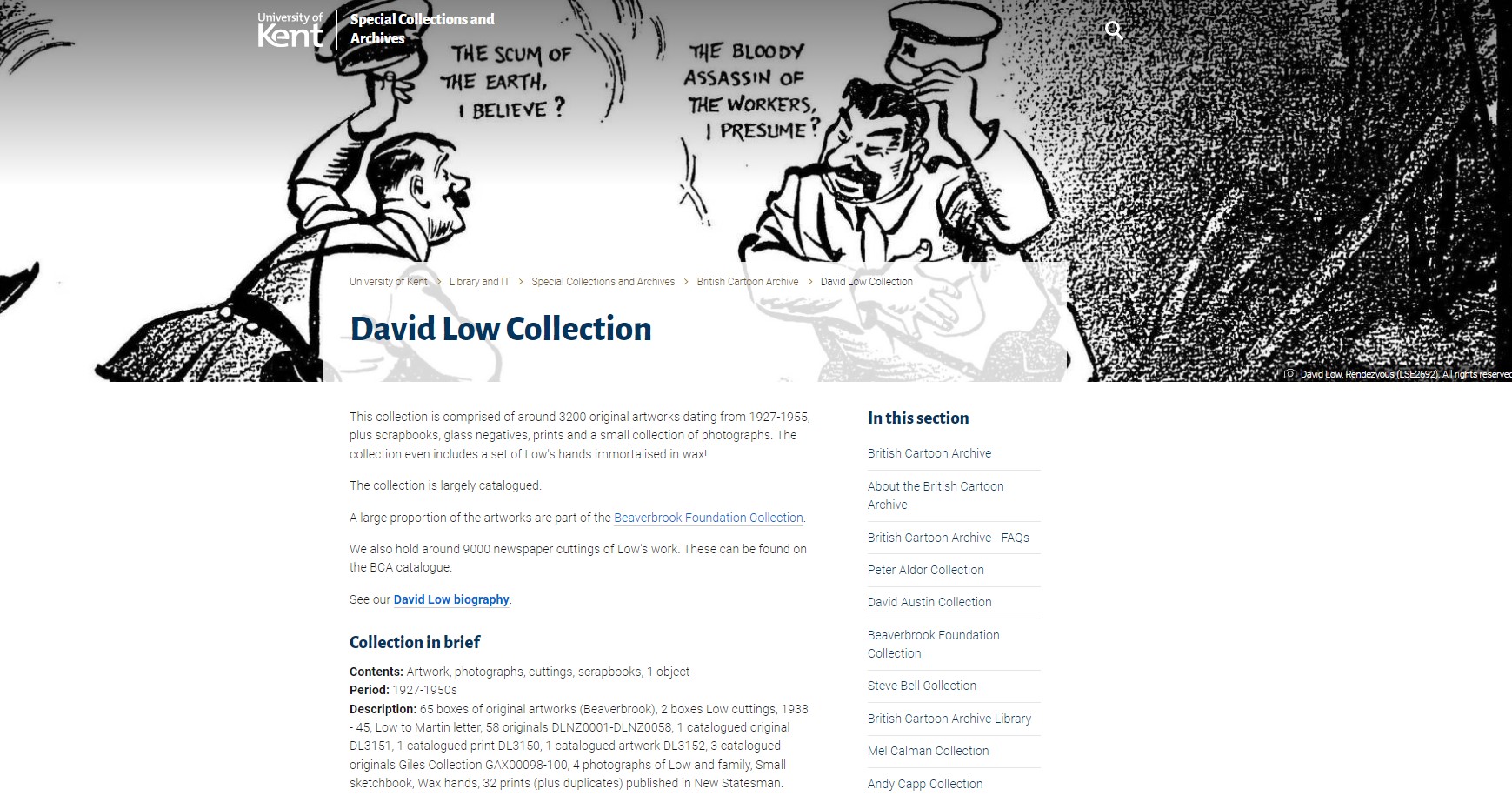
Screenshot of the David Low Collection page on our new website with a famous Low cartoon as its background.
As you can see in the example above, we’ve also added pages for all of the British Cartoon Archive collections individually for the first time so it should be a lot easier for you to understand what we hold and how to access it.
Some of our old Collections pages held a lot of information so in some cases, we’ve transferred this into documents or into catalogue listings where appropriate. If you can’t find something please just ask us.
Have any URLs or links changed during the move to the new site?
Yes and no! Our main homepage address has changed from www.kent.ac.uk/library/specialcollections to www.kent.ac.uk/library-it/specialcollections to come in line with the Library’s URLs which changed last summer. However, we’ve been working with our IT colleagues to ensure that all the old addresses should redirect to the new ones where needed. This work will continue over the next few weeks so if you don’t see the new site yet, don’t panic!
I can’t find [X page] or [X information] any more, where is it?
We’ve worked really hard to ensure that all the content on the old site has been migrated safely (ncluding making lots of backups of pages), and we’ve tested the site with colleagues a lot, so hopefully this shouldn’t be the case. However if you do have trouble locating any information please do send us a screenshot with details to specialcollections@kent.ac.uk and we’ll look into it ASAP.
We hope you enjoy exploring our new site! We’d love to hear your thoughts on the refresh so do get in touch with us if you have any comments.

